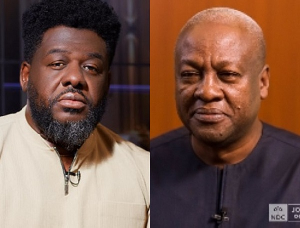The High Commissioner of Ghana to Australia, H. E. Dr Joseph Agoe embarked on a working visit to the University of Newcastle (UoN), Callaghan Campus on 16th April 2021.
The purpose of this maiden visit, undertaken as part of his familiarization tour to deepen and strengthen the existing cordial relationship between the High Commission and the University and to further entrench the University’s long-standing academic cooperation with Ghana and Africa.
This visit was made possible by the immense commitment of the Centre for African Research, Engagement and Partnerships (CARE-P) to network between African and Australian Universities and partners through its formidable Ghanaian Director, Dr. Janet Dzator.
The High Commissioner held fruitful discussions with Professor John Fischetti the Pro-Vice-Chancellor, Professor Tony Travaglione the Interim Deputy Vice-Chancellor, Professor Rob Sanson-Fisher the Director, United Nations Institute of Training and Research (UNITAR)/CIFAL and Associate Professor Frank Agbola the Assistant Dean in charge of Asia Pacific Engagement, among others.
It was a fully packed day inundated with meetings, presentations, discussions and interactions with Staff of the University and Ghanaian Doctoral Students.
During the meetings, the High Commissioner expressed his deepest appreciation to the university for its conscious effort to engage and partner with African partners and for being one of the highest-ranked in terms of admissions for indigenous and African students.
The deliberations centred on Ghana-University of Newcastle relations, in areas of student exchanges, scholarship grants, research collaborations, aid to the mental health sector, developmental projects, among others.
The highlight of the day were the sterling presentations by seven Ghanaian Doctoral students on their research work, the findings, outcomes, and its relevance for Ghana and Africa. Most of the Professors of the College of Human and Social Futures were present at the presentations due to the outstanding performance of Ghanaian students. Some of the topics presented were:
• The Implication for Ghana’s Judiciary Embracing Therapeutic
Jurisprudence
• Suicide Prevention in Ghana
• Understanding Cervical Cancer Knowledge, Perceptions, and Attitudes
Among Female Senior High School Students in Ghana
• Multiple Health Risk Behaviours Among Vocational Education Students
• The Politics of Disputed Elections, Political Culture and Democratization in Ghana
• Beyond Economic Growth: Is Energy Accessibility a Pre-Condition for Reducing Income Inequality in Sub-Saharan Africa and
• Does Culture Influence the Impact of Remittances on Economic Growth in Sub-Saharan-Africa
In his final words, the High Commissioner expressed his deep appreciation to the University for its conscious effort to engage and partner with African partners and for being one of the highest-ranked in terms of admissions for indigenous and African students.
He pledged the support of the High Commission to the University of New Castle for the mutual benefit of Australia and Ghana and encouraged the Ghanaian students to return to Ghana after their studies to contribute to national development.
Diaspora News of Monday, 7 June 2021
Source: Office of Ghana’s High Commissioner to Australia













